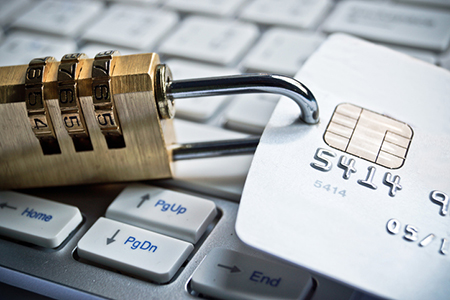(TNS)—As e-commerce takes more of Americans’ shopping dollars, the opportunity for web-based fraud increases.
Not only are more thieves lurking, shoppers’ comfort with e-commerce is leading to risky behavior. A 2016 Holiday Shopping Survey, conducted this fall by global information services company Experian, showed 23 percent of respondents said they would risk becoming a victim of identity theft for a good Cyber Monday deal. Additionally, 46 percent said they weren’t concerned about identity theft this holiday season.
“I look at that as like, I roasted my marshmallow nicely, but I burned by hand in the process,” says Michael Bruemmer, vice president of consumer protection at Experian, which is best known for its credit reports.
Along with major data breaches and tax season, the holidays are among the biggest times for online fraud because of the volume of shopping, Bruemmer adds.
Financial experts say consumers may be rushed or zealous about a good deal, but they should consider that if their information is stolen, it will have ramifications far beyond the holidays. The experts have several tips for shopping safely.
First, use a credit card. Although banks will generally cover fraud on both debit and credit cards, shopping online with credit cards means greater protections, says Matt Schulz, senior industry analyst at CreditCards.com.
“If a bad guy gets ahold of your debit card, real money is going to go away from a real checking account, at least for a little while until the bank replaces it. It can cause some real issues. That’s not something you need to worry about with credit cards,” Schulz says.
Farnoosh Torabi, financial ambassador and fraud expert for Chase, says to check out new websites before buying.
“We get led on to sites from social media, and (we think that if) they sponsored a post on Facebook, it must be legitimate, it must be reputable. Sometimes these sites are not as secure or as consumer-friendly as the ones we’re used to,” she says.
With new sites, check out reviews of what other shoppers said on third party review sites or the Better Business Bureau, Torabi says. Do a quick search of the store’s name and the word “fraud” or “scam” in search engines if reviews aren’t available. If there’s a phone number on the website, call to see if someone picks up.
All three experts also said to look at the search bar and make sure the URL starts with https. The “s” indicates it’s a secure site.
Before signing up for discounts with a merchant, read the privacy policy, Bruemmer says, as many may use cookies or other tracking data. The worst case scenario could lead to malware being sent, too. That’s why people should have up-to-date antivirus and anti-malware protection on their computers. And don’t use public Wi-Fi to shop when in stores.
“You’re putting yourself in a dangerous position when you do. Those connections aren’t secure,” Bruemmer says.
If you shop using mobile apps and digital wallets, make sure your phone is password-protected, Torabi says. She likes digital wallets for stores people shop frequently as there’s an added layer of protection. Digital wallets use unique coding for the person’s phone and transaction, which makes it easier to trace if there’s a problem.
Don’t toss receipts that come with the shipment, Torabi says, but shred them since the receipts carry the buyer’s name, address and partial credit card information.
Check credit card and online bank accounts weekly to watch transactions, Schulz says.
“It’s important for people to realize that they’re really their own best last line of defense. Nobody thinks twice about visiting Facebook or Instagram 10 times a day, but visiting your bank’s website once a week seems too much to ask, but it’s not, and it can really help,” he says.
©2016 Chicago Tribune
Distributed by Tribune Content Agency, LLC
For the latest real estate news and trends, bookmark RISMedia.com.










